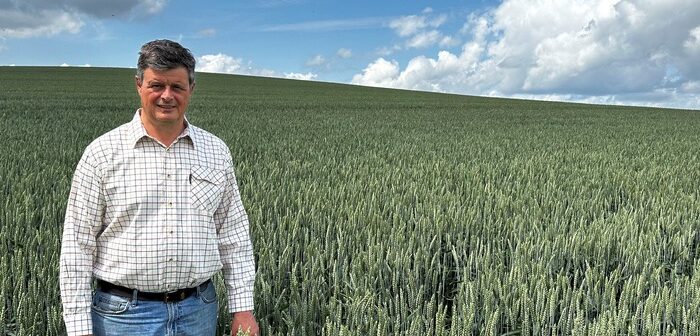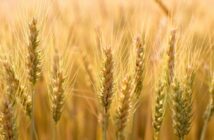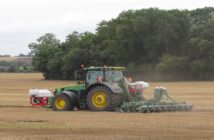With the wet weather in May causing a ‘perfect storm’ for Septoria in arable crops, Nelson winter wheat is proving its worth with high disease resistance.
Recent independent Agrii trials have shown that it outperforms other leading varieties for Septoria tritici resistance with the cleanest, lowest score of all varieties tested.
Unlike the recommended list, in private trials, the lower the score, the better the variety is performing. Nelson scored a 2 for Septoria tritici resistance and a 1 for yellow rust at Agrii crop stage 42 of the trials, on 24th May 2023. While other top performing varieties matched Nelson’s yellow rust score, all named lines didn’t perform as well for Septoria tritici resistance. KWS Extase scored 4, KWS Dawsum scored 3 and LG Skyscraper scored 5.
Bedfordshire farmer Nigel Barnes farms approximately 800 hectares of arable crops, 560 hectares of which is contract farmed, and has grown Nelson for the last two years.
He also grows winter milling wheat, winter barley and winter beans, as well as spring cereals as and when he can, to help to combat blackgrass.
“Last year we grew 16 hectares of Nelson and this year we are growing 52.5 hectares,” says Nigel.
“Nelson is not known to be high yielding but last year we got 9.8 tonnes to the hectare sold. It didn’t quite reach the spec for the premium over group one at 14% protein, but it managed 13% protein and got a group one premium with Heygates millers,” he says.
Disease resistance
“We’ve found that a real benefit with Nelson is its disease resistance. We have used 20% less inputs on Nelson than other varieties and we probably could have used even less.
“From my own observation, we reduced the seed rate of Nelson, so it’s around 15% less than the other varieties we grow, and it’s early in terms of the spray programme and the harvest – I’d say around two to three days ahead of anything else, it also tillers well,” adds Nigel.
Lincolnshire-based farmer Andrew Daubney is producing high grade Nelson seed on his family farm at home alongside his full-time post working in the seed production industry.
“We’re growing Nelson for the first time this year. It established well, it’s vigorous, clean, and the ears look good on it,” says Andrew.
“We also pulled back on nitrogen and rather than applying 220 kg/ha we’re putting on 190 kg/ha, on the advice of seed supplier Cope Seeds and Grain. I’m looking forward to getting the combine in there to see what it does,” he says.
Gemma Clarke at Cope Seeds and Grain is looking for Nelson growers right now for harvest 2024. “With demand for UK grown milling wheats on the up, we’ve got buy back contacts with premiums over group one milling wheat on contract to Heygates millers,” says Gemma.




